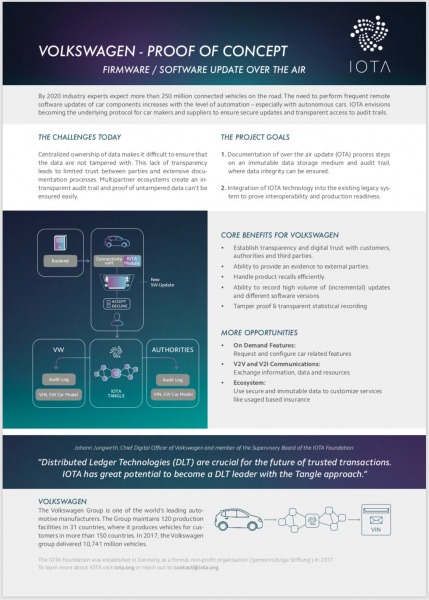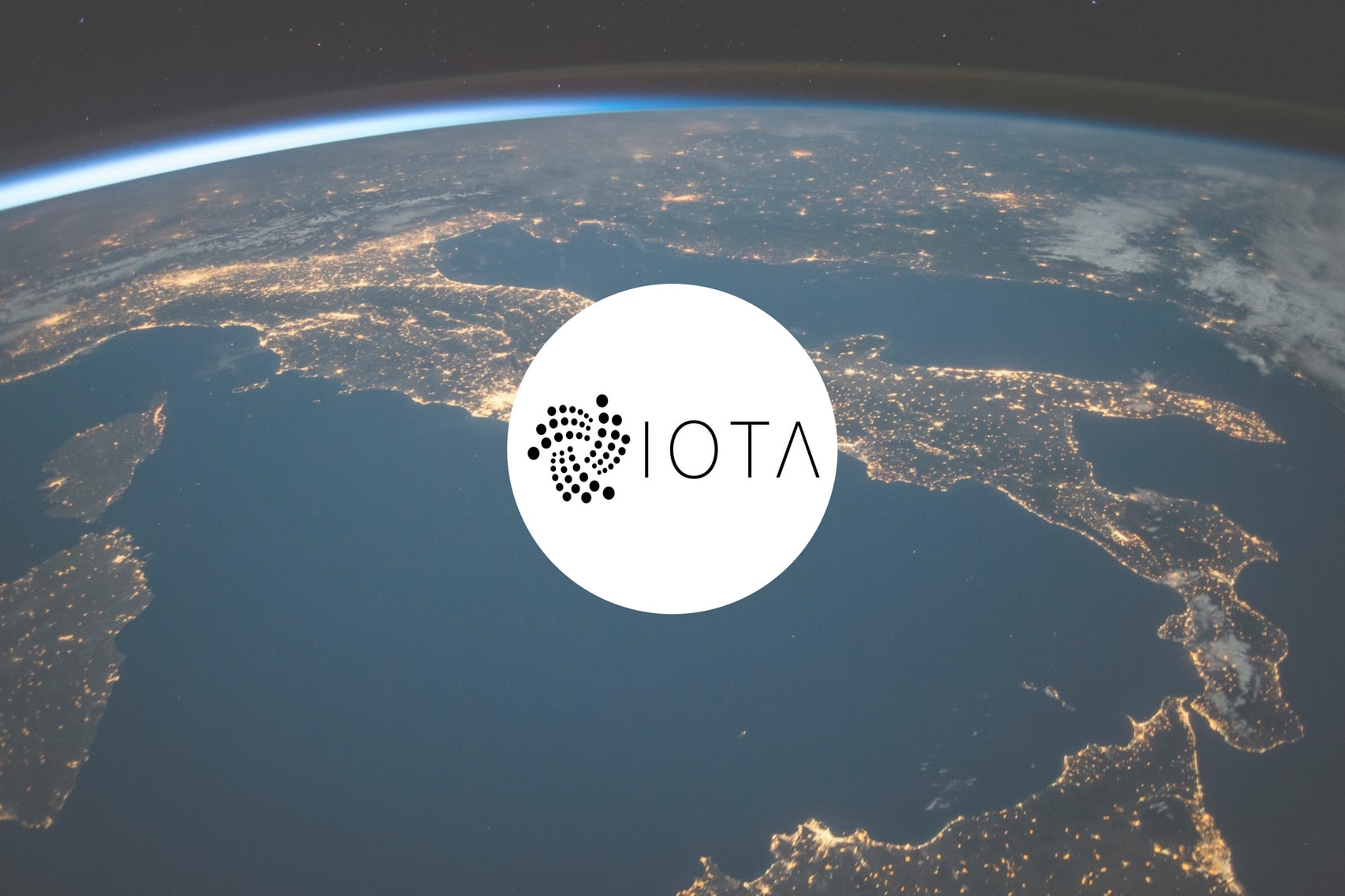The IOTA (MIOTA) project, which has for some time now been associated with the automobile industry, is set to launch its first working product in collaboration with Volkswagen in Q1 2019.
The product, called Digital CarPass, will see the network track data such as mileage for the evaluation of car performance in Volkswagen cars.
"For the development of the technology, #Volkswagen tapped the #IOTA Foundation, a Berlin-based nonprofit and one of the best-known initiatives in the #crypto community. Sinram said that #CarPass will be launched in early 2019." #VW #Tangle #SmartMobility https://t.co/sKGFBrQLSK
— IOTA News (@iotatokennews) August 26, 2018
Volkswagen’s Head of Blockchain Benjamin Sinram, in an event in Tel Aviv, Israel, elaborated on the 5 blockchain pilots that the automobile giant was pursuing, of which the initiative with IOTA was the farthest along in development.
IOTA and Volkswagen announced their partnership in February 2018, but this news marks the first major development in their joint efforts to bring IoT to the automobile industry. The launch will be a milestone for the project, and a public test that allows them to gauge efficacy and quality.
Distributed Ledgers and Automobiles Make for a Perfect Match
In the larger context, IoT is seen as a massive upcoming industry, affecting all of our devices, of which there are expected to be 20-30 billion by 2020. Indeed, Volkswagen is not the only automobile entity to consider blockchain, with Renault, BMW, Ford, and General Motors having launched a Mobility Open Blockchain Initiative (MOBI) to encourage adoption of the technology in the industry. IOTA is also a part of this initiative.

The introduction of distributed ledger technologies into the automobile industry would result in a massive boost in efficiency and streamline interactions between stakeholders.
For example, automatic data analysis of car performance would give the manufacturer real-time information on certain models of car, informing them of where improvements can be made. If flaws are found in certain models, the manufacturer can automatically recall the particular batch and diagnose the problem quickly.
Data analysis could inform the consumer about the performance of a car and the appropriate moment for inspection. The real-time feed could direct the consumer to the nearest garage while simultaneously giving the mechanic all of the information beforehand.
IOTA, one of the most anticipated projects, has the potential to completely disrupt several industries with its Tangle technology. Tangle differs from the blockchain in that its DLT is a Directed Acyclic Graph. IOTA claims that it will only grow faster as more users join the network, thus solving the scaling problem.
In addition to the collaboration with Volkswagen, IOTA is also working with the Taiwanese government to introduce digital ID cards and make Taipei a smart city. On the development side, the team has made several advances, including the release of the Trinity desktop beta wallet and a provisional roadmap for Qubic.
Related: 3 Features That Give IOTA an Edge in Real-World Applications

